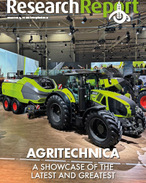This article is 4 years old. Images might not display.
NSW Department of Primary Industries (DPI) veterinarian, Liz Bolin, said 17 cattle deaths from lead poisoning were reported since July 2021.
"All recent cases reported involved young cattle and old car batteries which could have been avoided by removing batteries from paddocks before cattle had access," Dr Bolin said.
"The public can be reassured, livestock exposed to lead must be assessed by a veterinarian to ensure they are safe for human consumption, restricting lead-affected animals from slaughter.
"Prevention is the best strategy and removing the animals' access to lead sources is the first step."
Dr Bolin said cattle are inquisitive by nature and tend to chew on novel objects.
"Old battery casings can be brittle and break up, giving cattle access to lead. One broken battery potentially contains enough lead to kill a dozen or more cattle, while other potential sources include lead-based paint and waste oil," she said.
Sheep and other animals can ingest and be poisoned by lead, yet cattle are most affected by lead residues.
Often the first sign of lead poisoning is dead cattle. Some cattle may have no signs, while signs of acute lead toxicity include staggering, muscle twitching, teeth grinding and blindness.
Cattle exposed to lead must undergo a blood test and if positive are permanently identified on the National Livestock Identification Scheme (NLIS) database.
More information is available here: https://bit.ly/3C4GcCE
If you are concerned about potential lead poisoning in livestock contact a district veterinarian by calling 1300 795 299.























